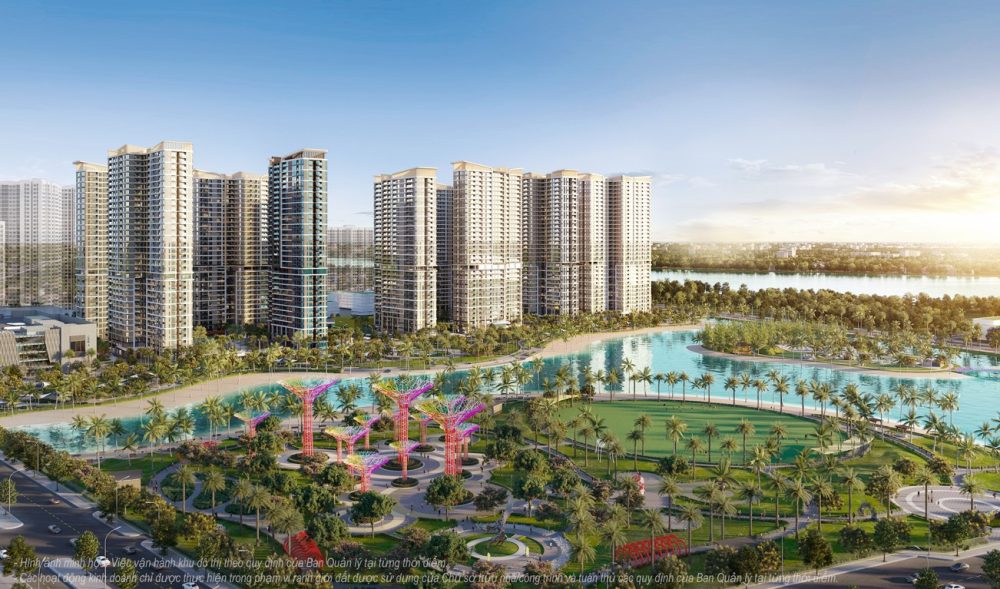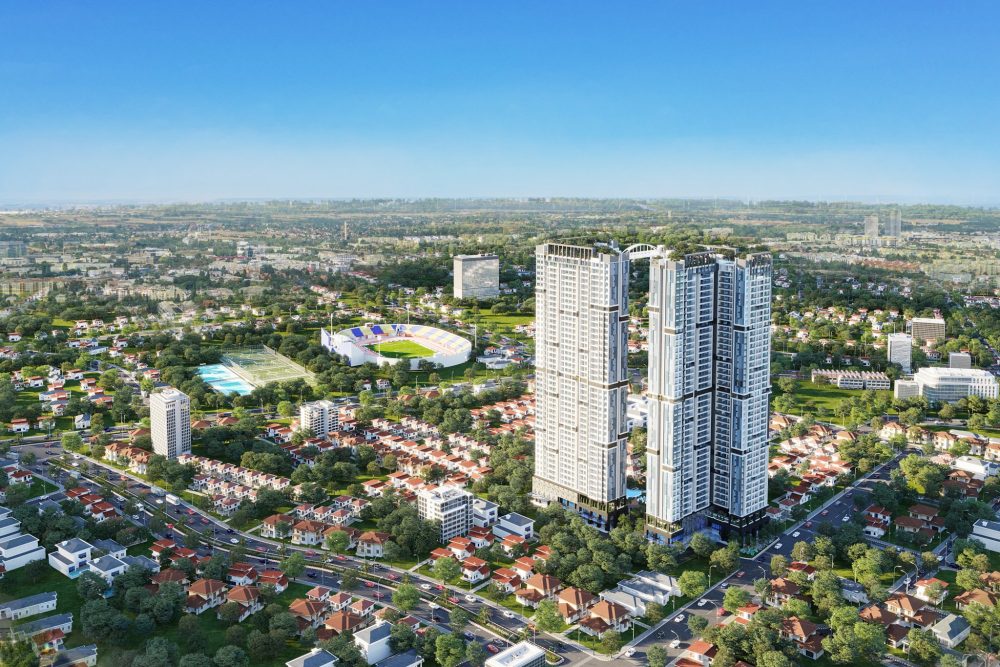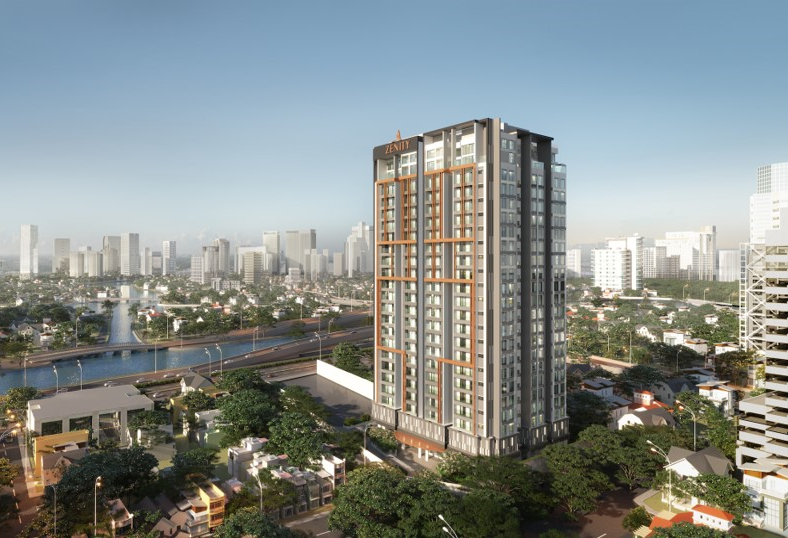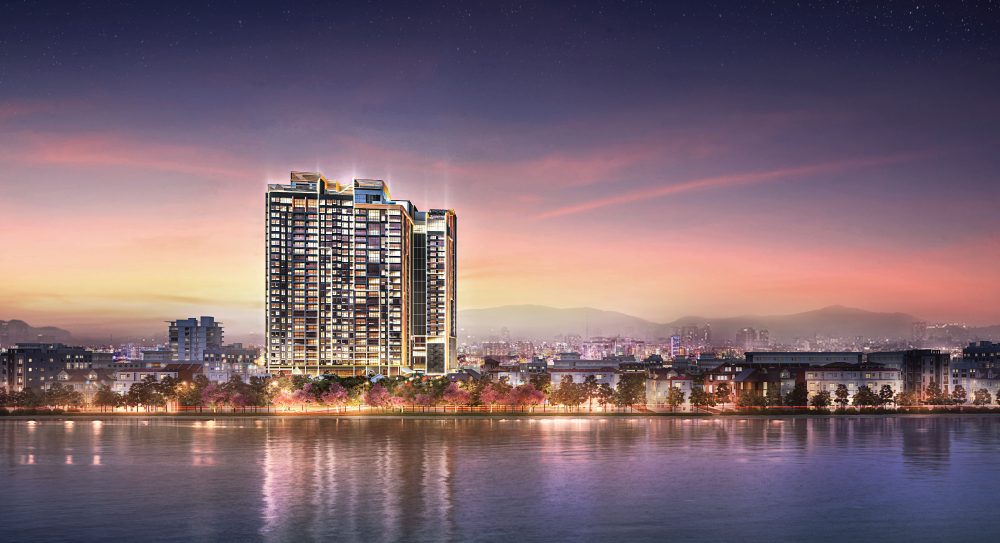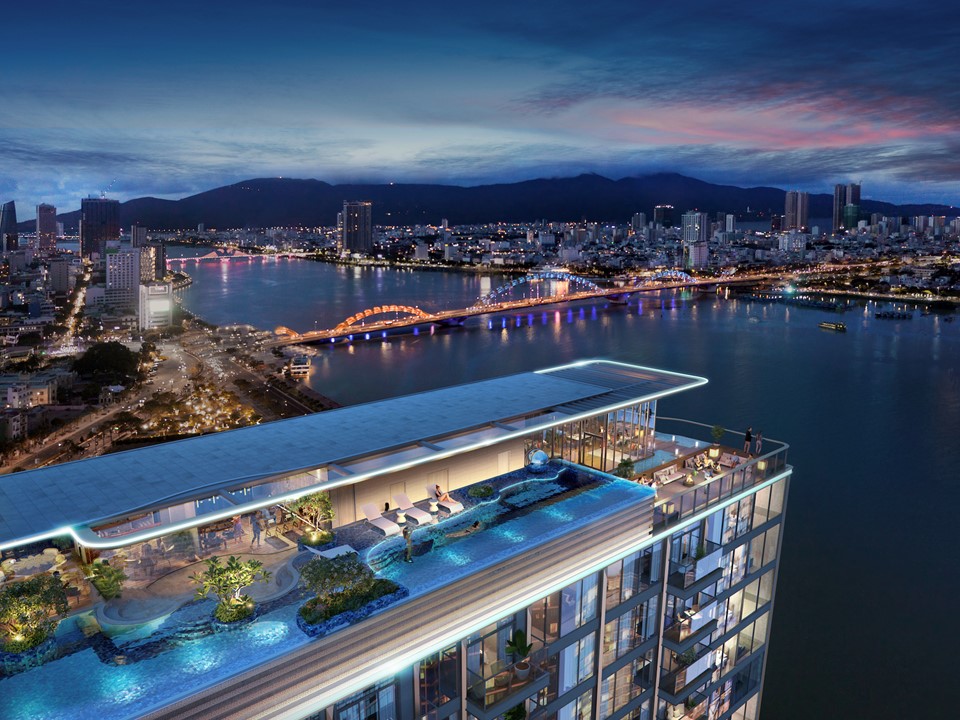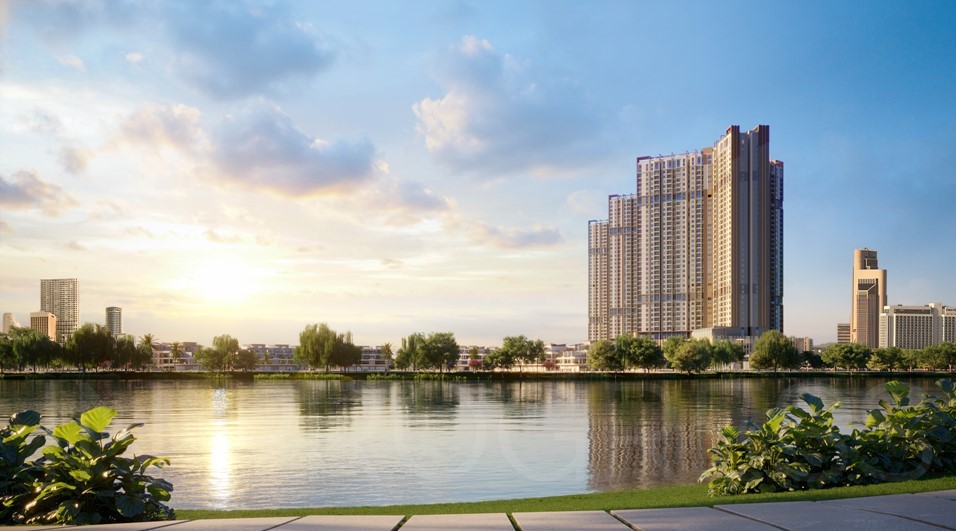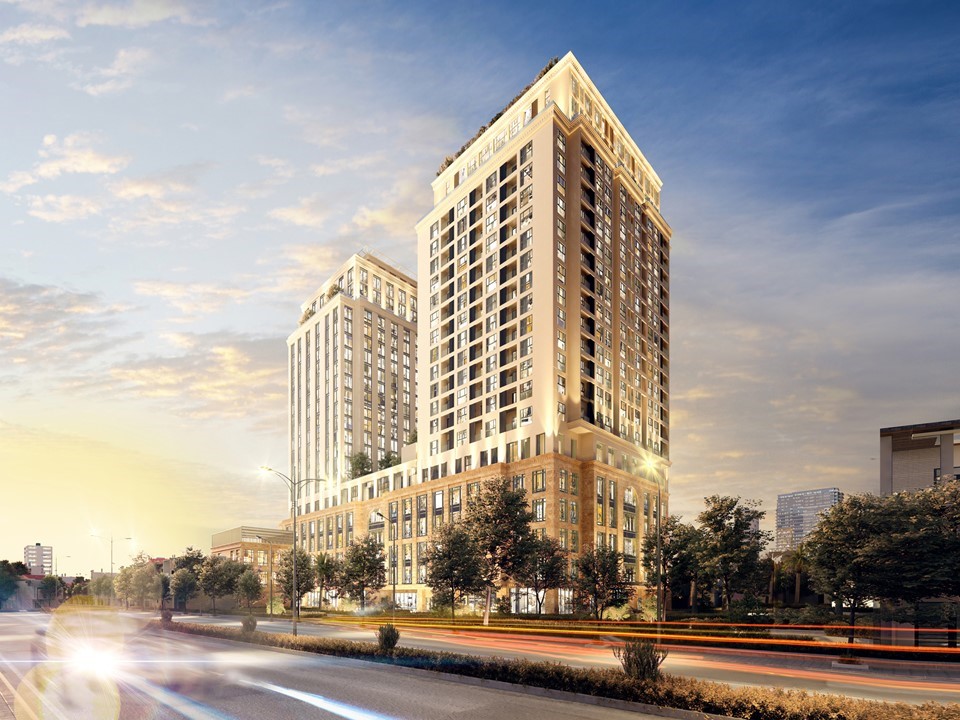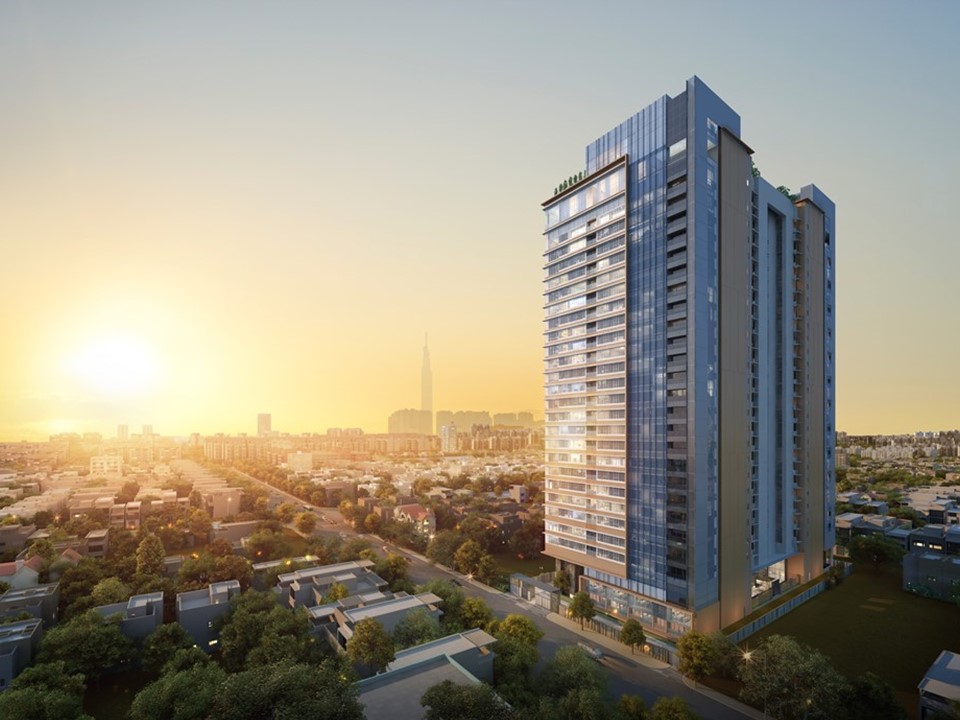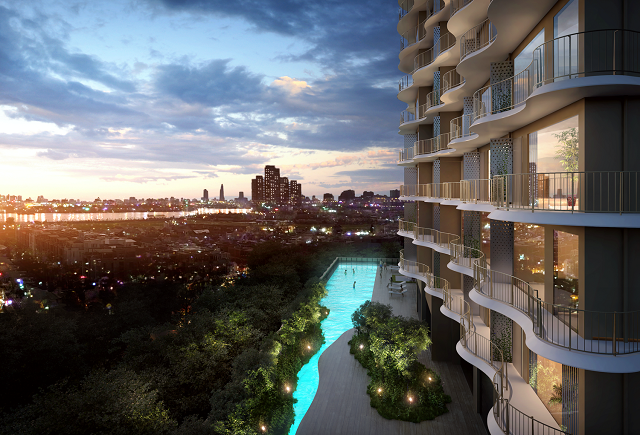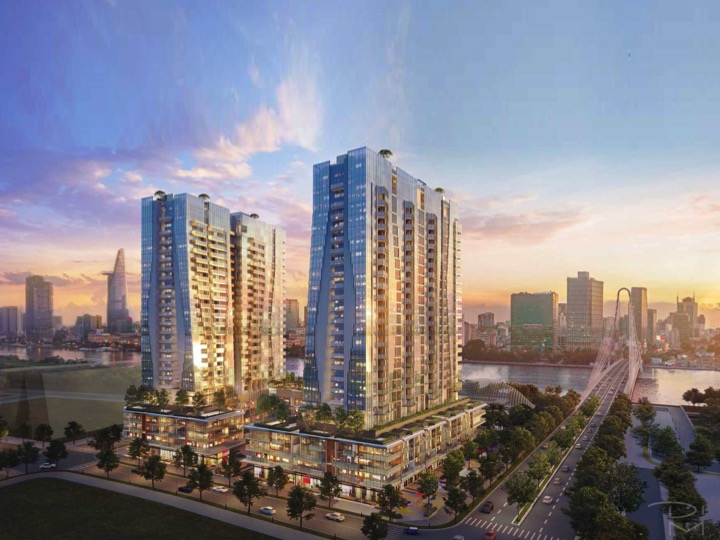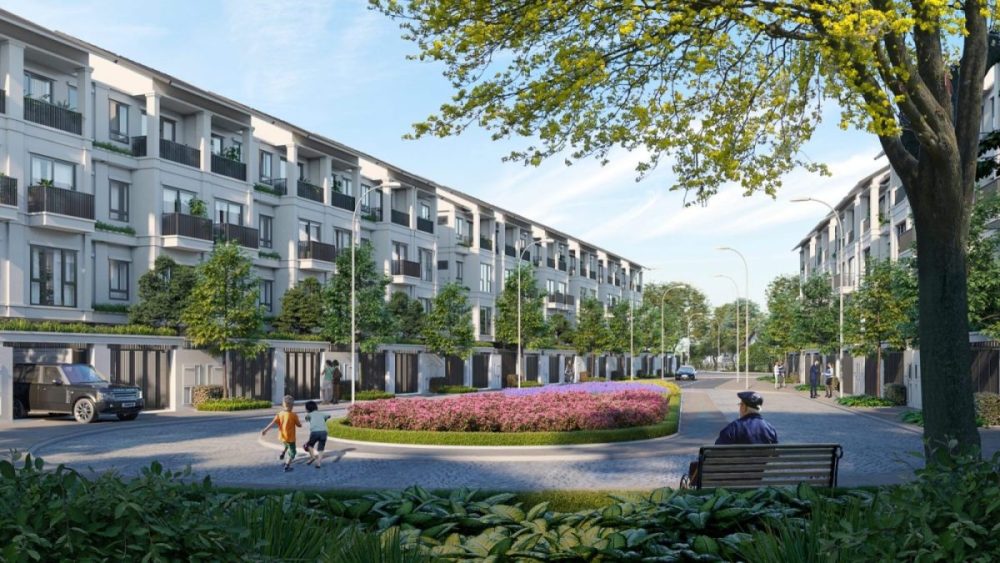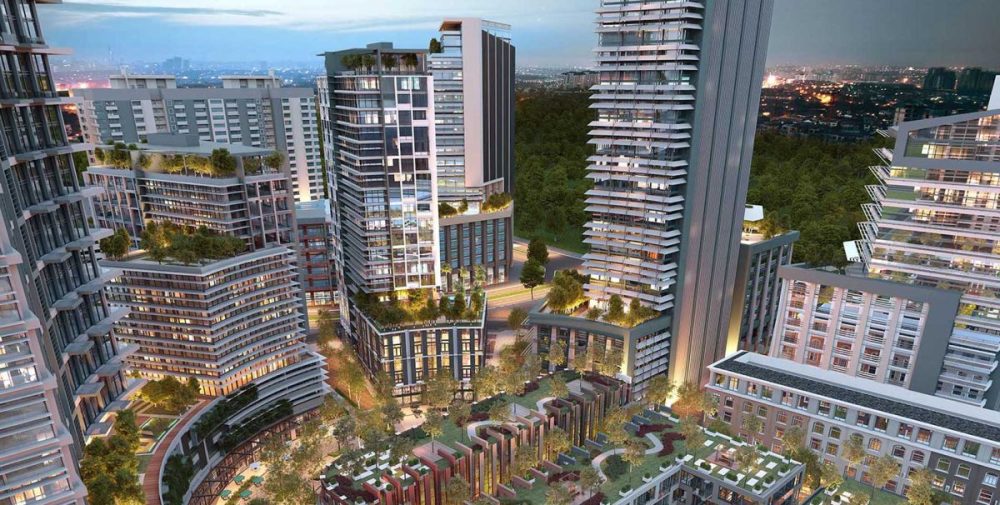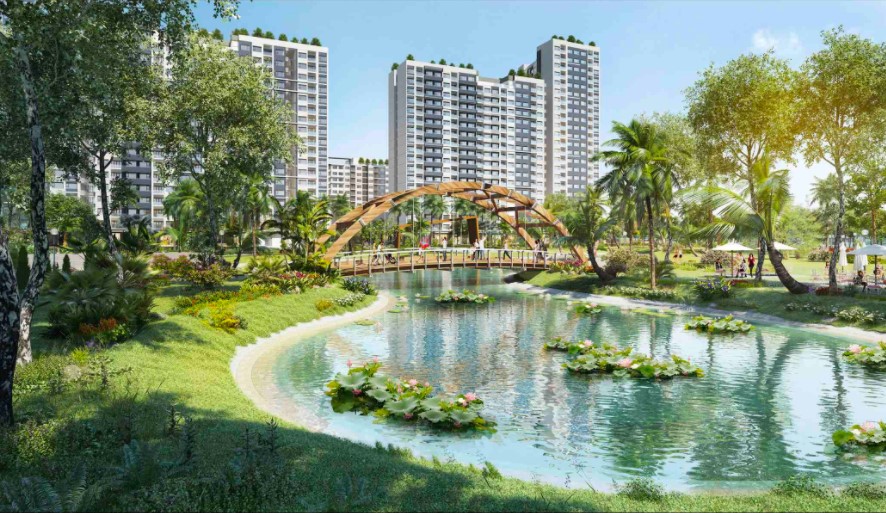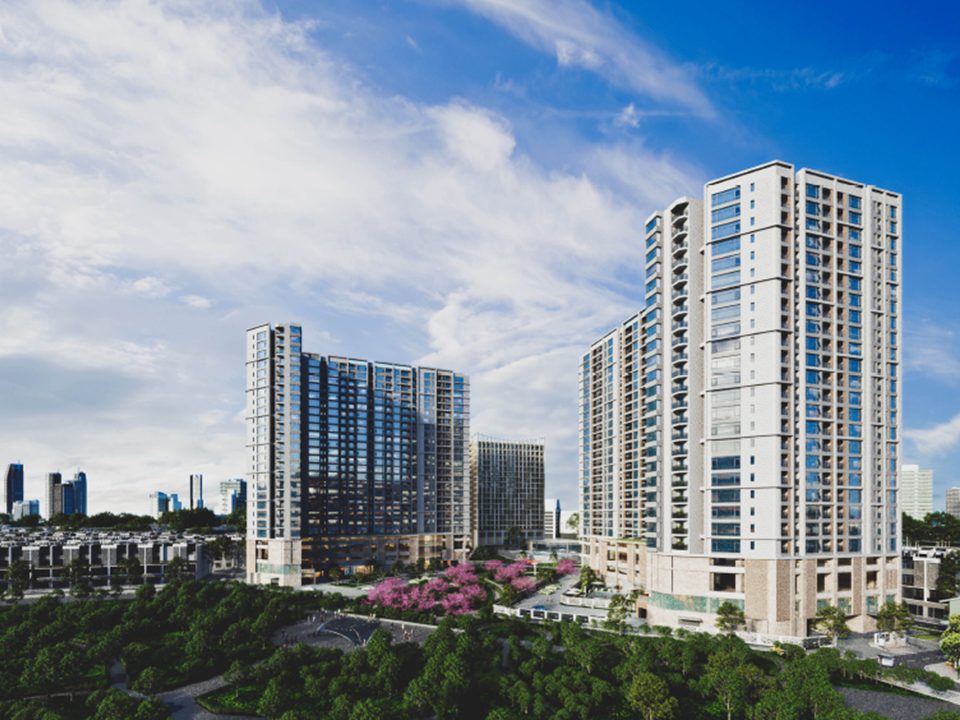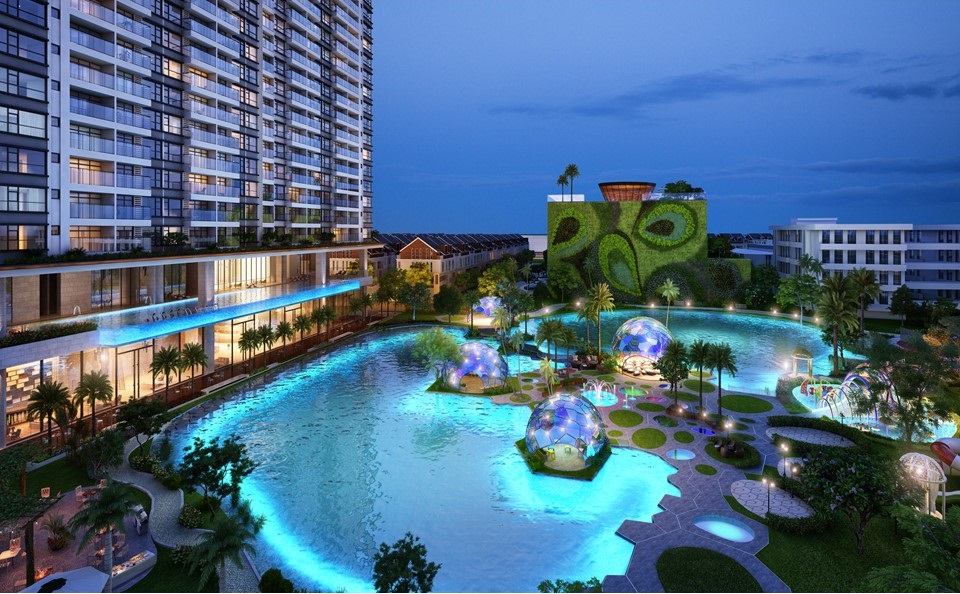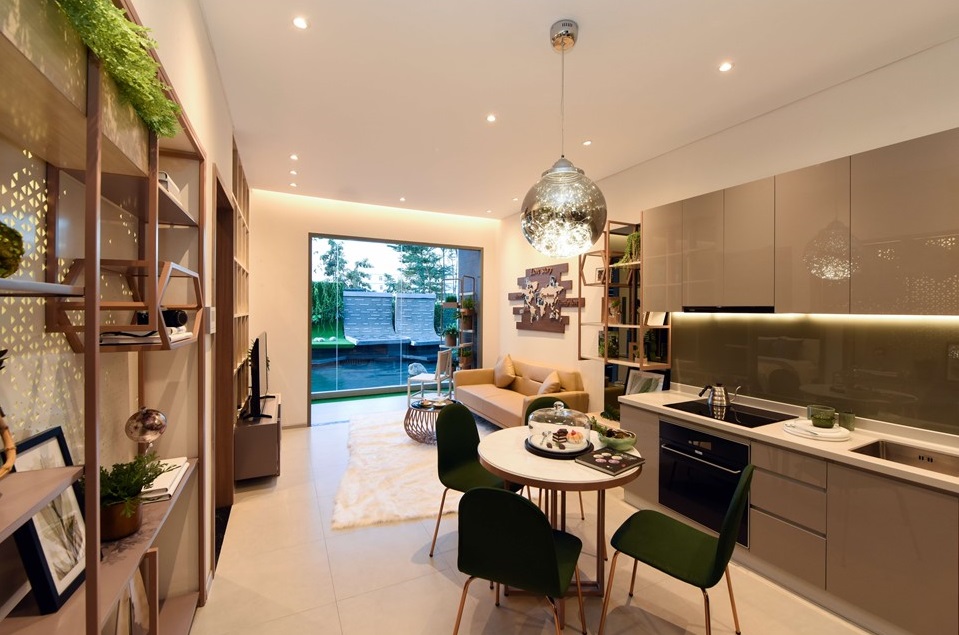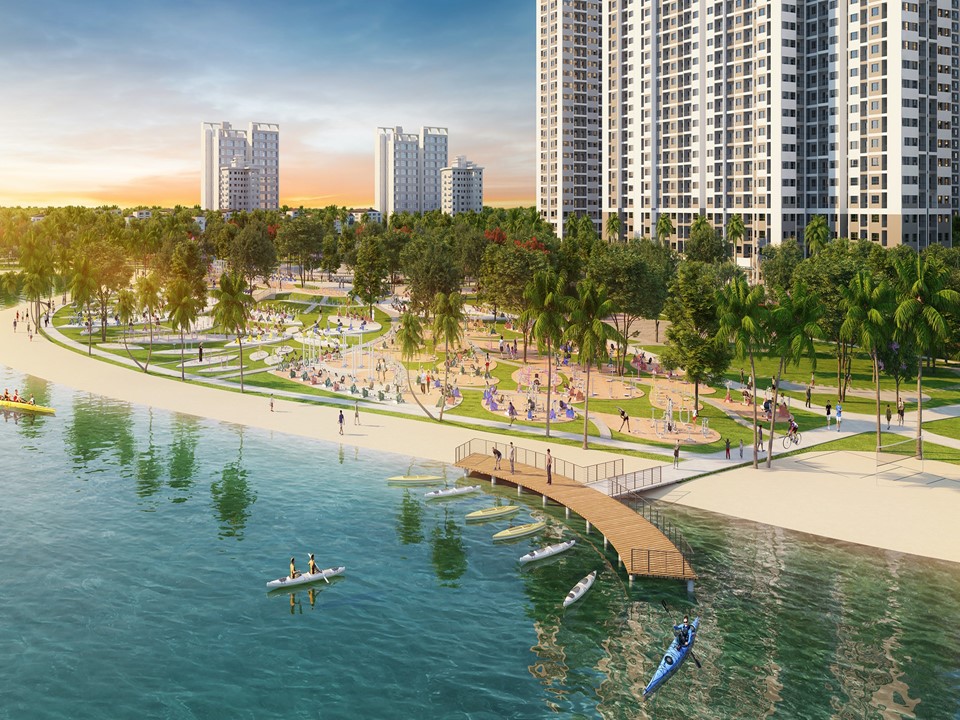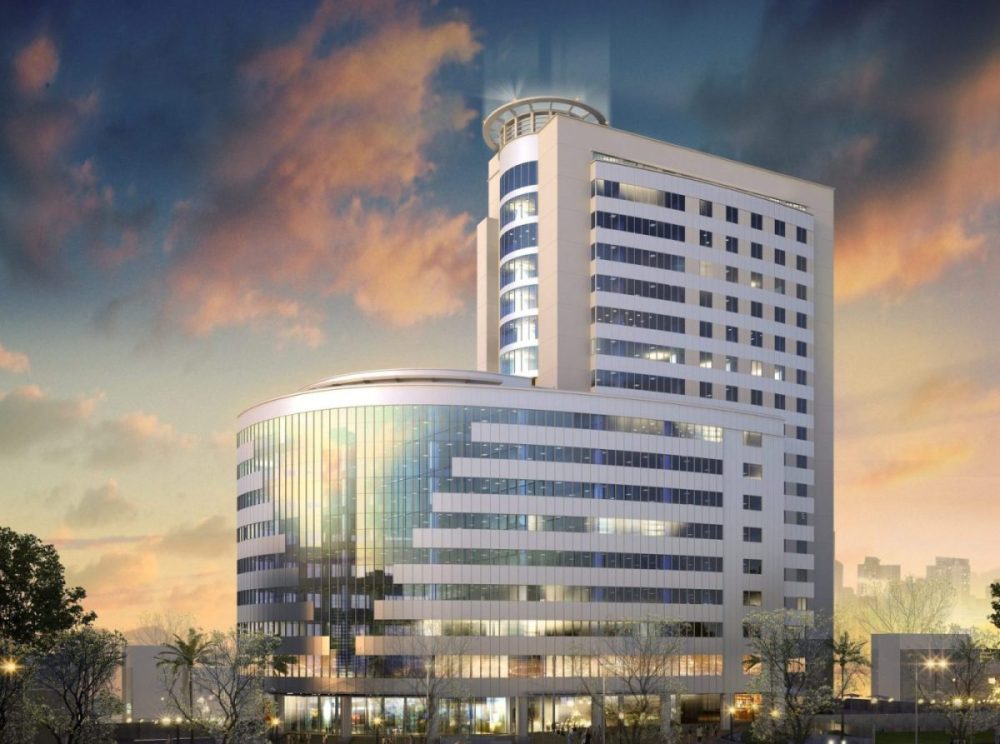Vietnam
Vietnam’s booming economy has guaranteed a lucrative growth in the country, which in turn, tremendously boosted the property market in its cities, including its capital Hanoi, Ho Chi Minh City (HCMC) and Hai Phong. The cities have implemented a number of strategic infrastructure and developmental projects to power its economic trajectory, coupled with the new residential housing law implemented which allows foreigners to buy properties in the country for a 50-year leasehold, stimulating an active growth in Vietnam’s property market.
Da Nang
The peaceful Coastal Life – Da Nang is one of the largest cities in Vietnam, it is a thriving tourist destination showcasing both its traditional beauty and modern culture. Boasting a vibrant city center, stunning coastal beaches with 96km of coastline, and impressive cultural heritage, Da Nang offers an extensive array of sightseeing opportunities and exciting activities for all types of travelers. Exuding a calm atmosphere, it is one of the top ten rising tourist destination and so attracts many foreigners to live here.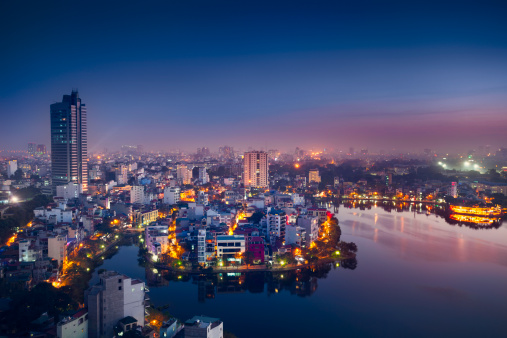
Hanoi
The Cultural Boom – Hanoi is Vietnam’s Capital, it has implemented numerous strategic infrastructure and developmental projects to further increase its comparative advantages including a major metro system to be completed soon, the expansion of Noi Bai International Airport, and transforming Nam Từ Liêm into the new CBD. These factors are predicted to stimulate an active growth in Hanoi’s property market. With the farseeing scarce supply of housing, a rising middle class population and income, the demand for housing will continue to increase, which may promise a high investment yield.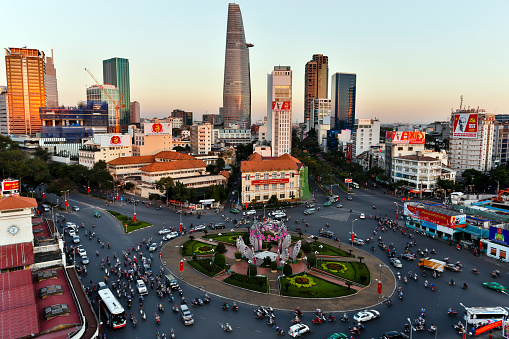
Ho Chi Minh City
The Financial Hub – Formerly known as Saigon, Ho Chi Minh is a thriving metropolis and Vietnam’s center of commerce. As the most populous city, it accounts for over 20% of GDP of Vietnam, playing a vital role in economy, culture and education. Its comprehensive plan for socio-economic development includes the new airport terminal by Year 2025 and the completed Metro Lines (MRT) in November 2021 has successfully nurtured the promising city to bloom to greater heights.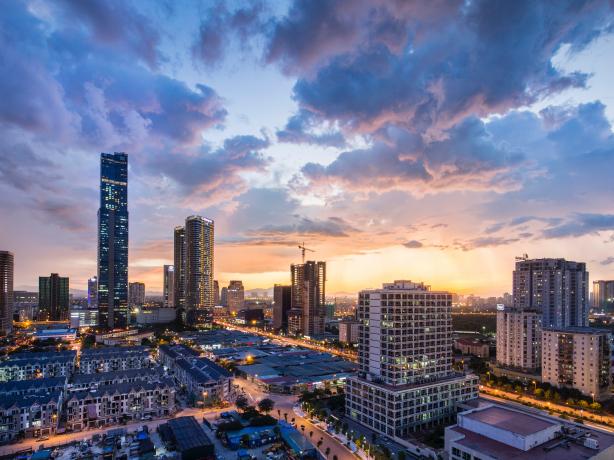
Hai Phong
Favorable geographic conditions – As Vietnam’s 3rd largest city, Hai Phong is the growing middle-class and rising international interest, resulted in a fledging real estate market with an extremely tight supply. Hai Phong has a strategic location to serve as a deep-sea out port for Northern Vietnam and southwestern China. The China-Vietnam “Two Corridor, One Belt” initiative places Hai Phong as the spearhead of economic modernization in Northern Vietnam to foster connectivity across Eurasia.PROPERTIES IN VIETNAM
Why should you invest in Vietnam properties?
Why should you invest in Vietnam properties?
High-Return Investments
Taking Ho Chi Minh City as an example, the local property price is HK$30,000/m2. It is not that difficult to purchase a property in Vietnam as Hong Kong people. In terms of rental yield, the average rental yield in Ho Chi Minh City is 6% while rental yield in Hong Kong is only 2%. Rental yield in Vietnam is three times as compared to Hong Kong’s.
One of the Fastest Growing Economies
Vietnam’s GDP growth rate has remained above 5% in the past ten years. In the first quarter of 2021, Vietnam's total import and export volume reached US$316.73 billion which has increased 32.2%. Local government expects the GDP growth rate in 2022 will exceed 7% after the epidemic.
Large Amount of Foreign Investment in Vietnam
Numerous international enterprises have set up companies and factories in Vietnam, such as IKEA, APPLE and COCA COLA. The government has also focused on building commercial areas, thus many foreign capitals have entered the local area to set up branches. It creates many job opportunities and also increases housing demand.
Rapid Development of Infrastructure
First railway line in Ho Chi Minh City will be launched this year and the Hanoi railway line will also be launched in the first quarter of 2022. The Vietnam Government plans to build a number of high-speed railway lines and an international airport which will effectively drive the flow of people in the city and improve the quality of life.
How much does it cost to purchase a property in Vietnam?
How much does it cost to purchase a property in Vietnam?
There are three parts of the fee that the investor has to know before purchasing a Vietnam property which are mortgage, down payment and tax. It may contain some miscellaneous fees too.
Mortage
If an overseas investor wants to purchase a property with a mortgage, they must fit either one condition as shown below. First, he/she is a Vietnamese spouse. Second, he/she is Vietnamese. Third, he/she has a residence card. If an overseas investor fits either one condition, he/she is allowed to apply for the mortgage.
Down Payment
Down payment is usually 30% of the property price, however it may vary slightly depending on the investor’s situation. If the investor has chosen a different bank to purchase the property, the down payment will be different depending on the discount. If the investor is a Vietnamese spouse, the down payment can be reduced to 20% while the loan term can be up to 15 years.
Tax
The Vietnamese government imposes different taxes on investors. In addition to the investment value of the property, investors are also subject to related taxes, including Value Added Tax (VAT), Registration Tax, Personal Income Tax and Personal Income Tax on rental income.
- Value Added Tax (VAT) —— 10% of the property price
- Registration Tax —— 0.5% of the property price
- Personal Income Tax —— About 2% of transaction value
- Personal Income Tax on rental income —— Pay 5% VAT and 5% Personal Income Tax
Best District in Vietnam for Property Investment
Ho Chi Minh City and Hanoi are the most popular regions in Vietnam for property investment.
Ho Chi Minh City
Ho Chi Minh City is the economic center of Vietnam. In addition, it is also one of the most dynamic cities in the world with a large number of infrastructure projects and developed transportation. In recent years, many foreign capitals have settled in Ho Chi Minh City which has greatly increased the housing demand in this area. It leads to Ho Chi Minh City becoming a great potential city. Besides that, the government plans to expand the airport. It represents that the economy and housing demand of Ho Chi Minh City will further increase. According to past data, the return of purchasing a property in Ho Chi Minh City is generally 4-5%.
Furthermore, Ho Chi Minh City is divided into 19 districts. District 2 is one of the best places to suit your living needs as it is nearest to the business center that is separated by a river. The property prices will be relatively high since this area is already equipped with complete facilities. Apart from this, District 4 is a new development area in Ho Chi Minh City which has relatively low property prices and wider room for appreciation.
Hanoi
As the capital of Vietnam, Hanoi is the political and cultural center of Vietnam. The rapid development of Hanoi has also attracted more foregin investors this year. Hanoi is the second choice for purchasing property in Vietnam. The Hanoi government expects to develop 8 railway lines and expressways to complement the airport building to be expanded which paving the way for the economic development of Hanoi afterward. At the same time, Hanoi is also committed to various infrastructure constructions to facilitate the large number of jobs and housing needs during the development period.
In terms of purchasing properties in Hanoi, Ha Dong is a potential place. Similar to District 4 in Ho Chi Minh City, Ha Dong is also a new development area with a large number of newly built office buildings. It also drives the housing demand in nearby areas.
What is the process for purchasing a property in Vietnam?
1. Find your favorite property
Interested investors can contact Vietnamese real estate developers in Hong Kong for details. Owing to various factors that may affect the value of the property, you must be concentrated when looking for your favorite property!
2. Pay the pledge fund
When a suitable property has been found, the deposit can be paid for the reservation. The pledged fund is about VND 50 million to VND 100 million. The fund is refundable at any time until the day of the actual transaction. If a decision is made to purchase the property, the deposit will not be refunded.
3. Pay the down payment and sign the deposit contract
Investors must pay the first installment within 14 days of the first payment. "Paying the first amount" means agreeing to enter the "Deposit Agreement", and the first amount will not be transferable. Set up a payment schedule with the seller before entering into a contract, and then pay in installments as specified in the contract terms.
4. Property handover
Before purchasing a property in Vietnam, investors are required to pay a maintenance fee equal to 2% of the property price. In addition, one year's management fee, operation fees and registration fees need to be paid.
5. Sign the SPA Agreement and prepare the title deed
After confirming all documents, both parties should draw up and execute a Sale and Purchase Agreement (SPA), which is used to transfer the building in the future. After signing the SPA, investors are required to submit documents to apply for a title deed. Final payment is due within 14 days of receipt of title deed. Owner can use the SPA to prove that the property has been purchased in the future.
What are the risks of purchasing a property in Vietnam?
Looking for reputable developers
Investors can find a reputable developer to purchase property in Vietnam, considering the experience of the developer team and the team must be familiar with the local Vietnamese culture, life and location. The local government also has many policies to regulate them, therefore investors have better protection.
Check the property information carefully
Interested investors should also check the property information, such as management team, property age, property quality, etc. Various factors will affect the property value. Furthermore, it should be noted that different sources of information will have great differences.
Looking for agents who have companies in both locations
Investors are advised to look for agents who have companies in both Vietnam and Hong Kong. In addition to being familiar with the local culture, life and location, they can also clearly grasp the real situation of the local property market. It is superior in terms of communication or handling after-sales service. At least, it can reduce misunderstandings in communication and the transaction process is also smoother.



